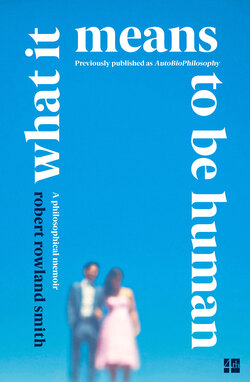Читать книгу What it Means to be Human - Robert Rowland Smith - Страница 19
Frenemies
ОглавлениеAlthough David Cooke turned into, or was turned into, Colin’s nemesis, I do recall a period when one or two faltering attempts at a friendship were made by my father. It must have been a big deal for Colin, because although he came across as gregarious, handsome and jocular, it wouldn’t be an exaggeration to say that he had no friends. Life consisted of his office, our home and the commute between the two termini. I have more fingers on one hand than the number of times I remember my parents going out for the evening, and I have no recollection at all of any friend making a visit. The double bed in the commodious spare bedroom remained cold from 1970 when we moved in, right the way through to 1983 when we moved out.
I say the attempts were faltering, as if they could have been otherwise. But how could they, given that clash of the two systems, family and business? Even without such entanglements as those affecting Rowland Smith & Son Ltd., work friendships are rarely without complications. You don’t become friends with somebody through work unless the work was there in the first place to bring you together. The work provided the environment in which you met, and both of you will have gained entry to the organisation on the understanding that you would contribute to the shared goal. Work is the context of your friendship. So when you meet outside work as friends, the most you can do is to put that context in brackets. You can’t erase it altogether. Even if you never talk shop, your awareness of each other as co-workers remains in the back of your mind.
Why is that a problem? The presence of a shared goal acts like an alloy, thinning out the friendship’s integrity. Obviously, friends often do come together to perform a shared task, like putting up a tent or cooking a meal. The point is that the friendship doesn’t depend on such tasks in order to survive. That’s how friendships differ from relationships in the workplace, where the lack of a goal leaves people at a loss as to what to do. It is also how friendships resemble family relationships: both are an end in themselves. Friendships should consist in no more than that horizontal line between two people, with no tip of the triangle representing a goal. That horizontal line is also the line of equality. No friendship will be authentic if there’s any inkling of one friend feeling superior or inferior to the other. Both positions are bad for the soul.
The test comes when one of the friends quits the organisation. The deeper the friendship, the longer it can survive without the binding of work. We know we were never really friends if we lose touch soon after one of us has moved on. Needless to say, Colin and David did not remain friends in the wake of Colin’s sacking. Even when working together, the friendship never got off the ground. Ulterior motive was too much in play. For Colin, befriending David would have been, at least subconsciously, a way of neutralising a potential threat. For David, currying favour with another Rowland Smith could only bolster his position. The most they could have ever been to one another was ‘frenemies’.
